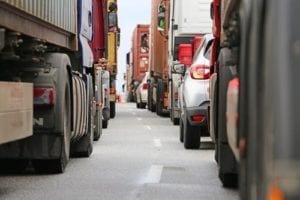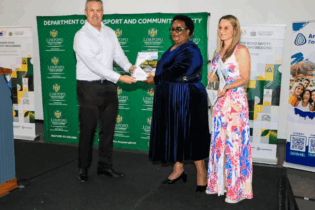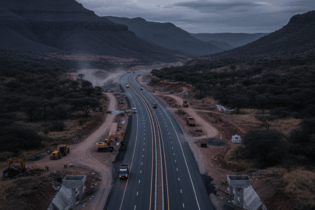The transport industry is going to have to think laterally if it is to limit the impact of the coming Carbon Tax, says Mike Schussler.
South Africa’s logistics costs, as a percentage of its GDP, currently stand at around 13%, 7% of which is derived from land transport. “That figure is going to be hit quite hard by the Carbon Tax,” says economist Schussler. “It’s going to make transport even more expensive and less competitive”. The looming Carbon Tax, delayed until 2016, is likely to become one of the big taxes government will collect and is unlikely to be ring-fenced. “As we’ve seen with e-tolling, they don’t like ring-fencing taxes. Some taxes are ring-fenced, like fuel, TV licences, or the Road Accident Fund. But this Carbon Tax will not be ring-fenced – it will go into general state coffers. “A lot of money in the general state coffers goes to salaries. It doesn’t go to help the environment; it’s not going to build us better roads to get rid of traffic jams so that we can have fewer emissions in the transport sector. It’s not going to fix robots. If we want the low hanging fruit, in our sector, we have to think differently. We should do certain things like implementing a green wave. (A green wave occurs when a series of traffic lights – usually three or more – are coordinated to allow continuous traffic flow over several intersections in one main direction). In the 1940s, an engineer determined that, if you time traffic lights, the flow of traffic is improved. The concept progressed from there – today there are programmes that you can buy off the shelf. “We could do it properly – the whole of Joburg. We could coordinate buses, trains, trams, anything we wanted, and get an optical flow of traffic. In many cases, that system reduces carbon emissions in transport by more than 20%.You’d spend far less implementing that and have a big impact on the transport side of carbon emissions.”The industry should also brace itself for slow price increases from the refineries, which are huge users of electricity. A lot of the carbon tax imposed on coal-fired electricity generation will be transferred to the transport sector in the form of increased fuel prices.
“We sit in a country where regulations don’t always make sense. The first thing we should do is carry out regulatory impact assessments of any regulation that comes out of any government department. If you’re going to take the trucks off the roads for six hours each day, imagine the additional carbon you’d produce from having more trucks – and more congestion – on the roads? “If you look at the whole picture, we are not thinking everything through. Everything is compartmentalised in South Africa. In a cost-conscious environment, where we’re going to be under severe pressure, adding taxes to the whole mix might kill the goose that lays the golden egg.”






